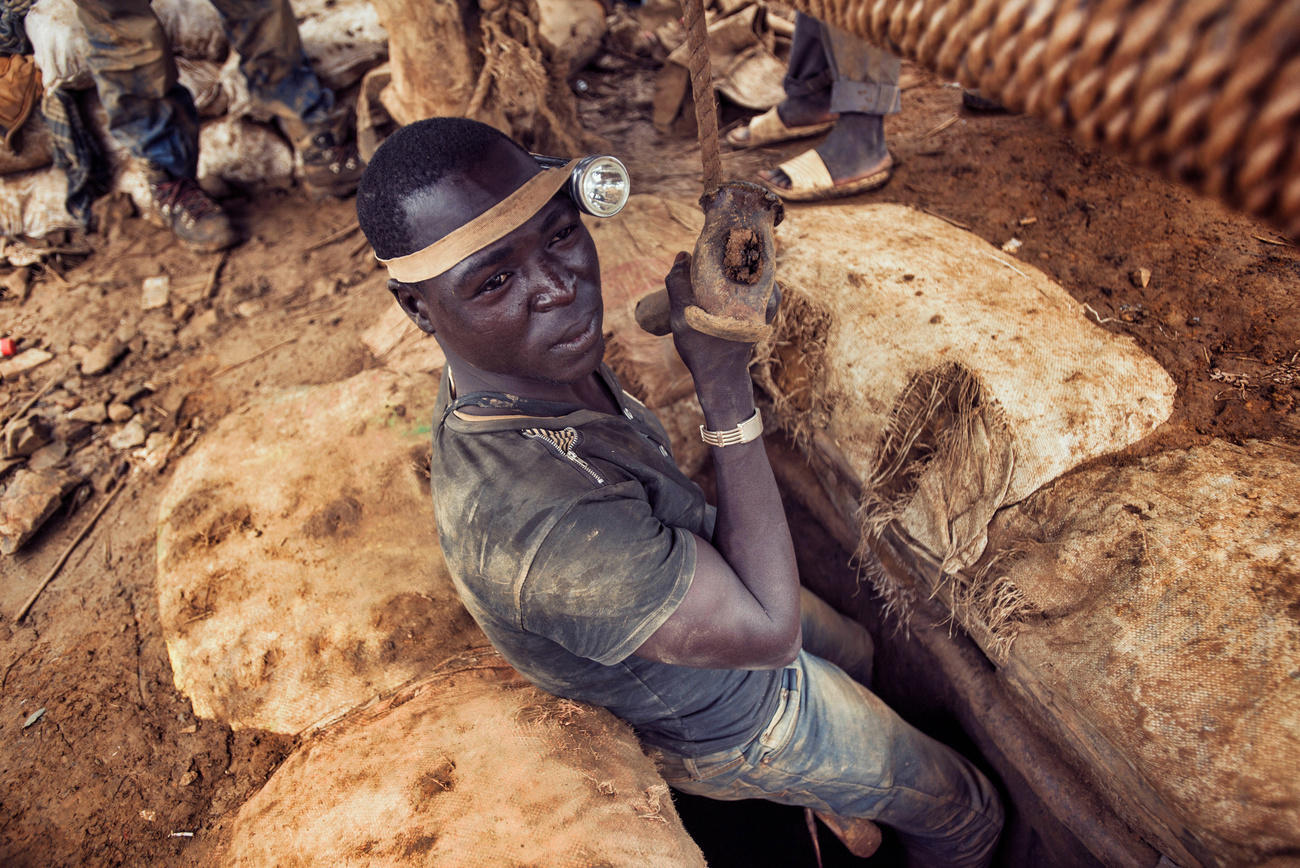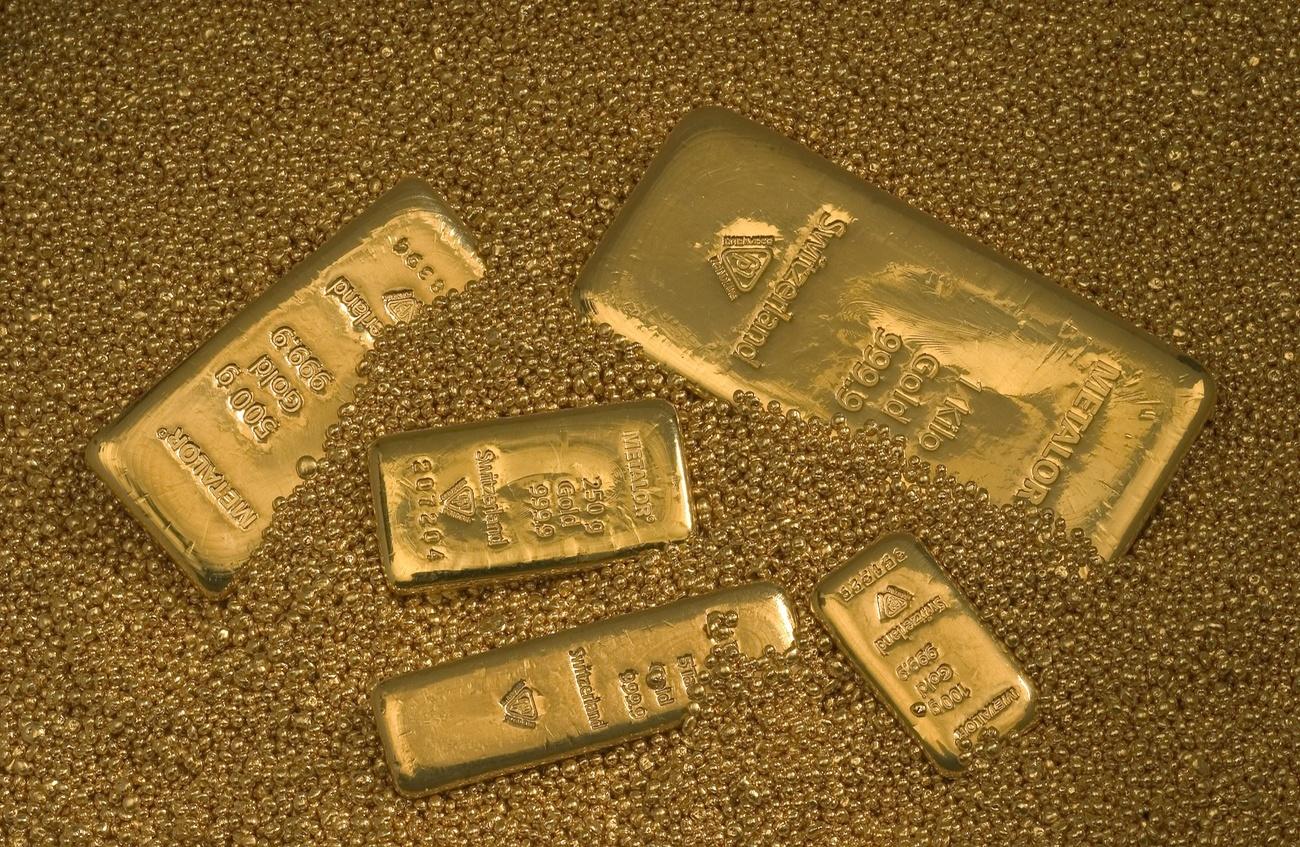Clean gold: How Switzerland could set new supply chain standards

Switzerland is the undisputed top dog of the global gold industry, refining a majority of the world’s gold, as well as being the leading exporter. But how seriously does the country take its responsibility to ensure sustainable mining and the protection of human rights?
“This position of great global power comes with great responsibility because – here’s another thing too few people know – gold mining comes with its fair share of risks and problems,” notes Mark Pieth, professor of criminal law at Basel University in an op-ed for swssinfo.ch.

More
Boycotting artisanal gold miners is not the answer
In this regard, the Alpine nation often falls short. Swiss refiners – despite their efforts and discretion – are often in the crosshairs of human rights and environmental groups who express alarm over the environmental footprint of gold extraction, the hazardous working conditions at mines and the wider lack of transparency along the supply chain.
SWI swissinfo.ch’s focus on gold coincides with a broader push to regulate the commodities sector, both at home and internationally. In Switzerland, the Responsible Business Initiative wants to make Swiss-based multinationals measure the impact of their actions abroad and hold them accountable for due diligence failings.
There is no comprehensive international framework governing the gold industry. The closest is an OECD standard (Due Diligence Guidance for Responsible Supply Chains of Minerals from Conflict Affected and High Risk Areas). This initiative has spawned a broad range of voluntary industry initiatives. National laws cover mining exploration and extraction while financial regulations tackle money laundering.
Gold is both a top import and key export for Switzerland. Precious metals and gemstones accounted for 25.2% of imports and 22.4% of exports, second only to chemical and pharmaceutical products (34.3%), according to the 2018 Federal Customs Administration figures. Commodity trading accounts for nearly 4% of Switzerland’s GDP.

More
Swiss watch and jewellery makers under scrutiny
Long history, bright future?
According to Pieth, Switzerland benefited from its neutrality during World War II by purchasing vast amounts of gold from Allied and Axis powers.

More
From Nazis to refineries: How Switzerland has handled the world’s gold
It took until 1996 for the Swiss National Bank to publicly admit it had profited from its wartime dealings in gold bullion with the central bank of Nazi Germany.
Our coverage of the gold trade weaves together lessons from the past, challenges of the present and future trends. In source countries, we look at the track record of industrial versus artisanal mining. We measure the success of different certification schemes and efforts to bring transparency to the supply chain along the way.

More
Can Swiss refineries stay ahead of forgers?
Unlike many other commodities traded in Switzerland, gold physically enters the country and is stored and processed here. What is the tone set by the Swiss government?

More
Swiss commodity traders at the forefront of best practices
And to what extent do Swiss consumers and voters care? Gold industry critics believe stronger regulation is long overdue in Switzerland, while industry lobbyists maintain they are at the forefront of best practices.

More
Swiss regulation of commodity trade long overdue

In compliance with the JTI standards
More: SWI swissinfo.ch certified by the Journalism Trust Initiative









You can find an overview of ongoing debates with our journalists here . Please join us!
If you want to start a conversation about a topic raised in this article or want to report factual errors, email us at english@swissinfo.ch.